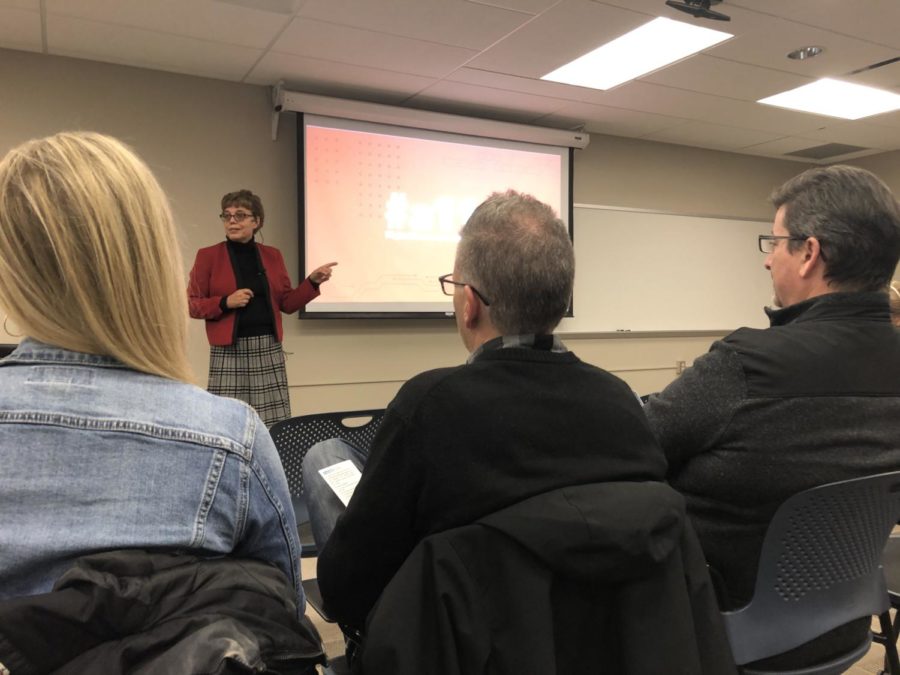Digital Accessibility Lab opens in Durham Center
November 6, 2019
With the increase in enrolling students with disabilities, Iowa State’s Digital Accessibility Lab is one step toward making it easier for students with disabilities to function within a college environment.
The lab, located in the Durham Center room 108, is overseen by Cyndi Wiley, Information Technology Services (ITS) digital accessibility coordinator, and staffed by two graduate students and an undergraduate student, whose positions are sponsored by ITS as well. Students are able to visit the lab for training opportunities and use the provided equipment for projects, with the possibility of a check-out system being implemented in the future.
“It is real and we get to see how people are going to use the space, which may be different than what we were planning — and that is okay,” Wiley said. “We planned for us to track how it is being used and make adjustments as we go from there.”
Many Iowa State students experience daily barriers to their educational goals, and creating barrier-free access to hardware and software falls under the broad area of digital accessibility.
Digital accessibility is not only the production of course materials, websites and communications in an accessible manner, but also a mindset and related directly to the student experience, according to the Digital Accessibility Lab website.
The Digital Accessibility Lab is a physical space on campus for students with disabilities to work together using assistive technology and to try out new technologies that could increase their course engagement.
Wiley said six students can use the space comfortably with the provided desk space and seating.
“For the rest of the fall semester the lab will be open by appointment,” Wiley said. “Next semester we will have open hours and we will get feedback from students and when they actually use it and hopefully offer evenings, weekends and during the day as well.”
Some of the technology available for use in the lab includes Windows and Mac laptops, Windows desktops, screen magnifiers, screen reading software, text-to-speech software, speech-to-text software, gaming hardware and software, VR headsets, eye-tracking devices, wearable keyboards and switch controls. For the full list of technologies, go to the Digital Accessibility Lab website.
On Wednesday afternoon, Wiley hosted an open house and dedication of the lab in another room of the Durham Center. The event was attended by a large number of Iowa State students, faculty and staff.
Throughout the dedication presentation, Wiley and the other speakers used a powerpoint instant caption device, which translated what the speakers were saying into text on the screen for those in the audience who needed it.
“In 1997 I graduated from college, moved back home to be a basement child for a short time, accepted my first grown-up job as a graphic designer and came out as a lesbian,” Wiley said. “My dad told me not to broadcast it, there is shame and stigma in being gay and there still is. Coming out is a life-long process; I have to come out to new colleagues, doctors and people in the grocery store when my partner and I are buying kitty litter and bubbly water. It is a constant everyday occurrence and a similar experience for those of us with disabilities. Whether you have an invisible disability like me or you have visible disabilities, you are in a constant state of coming out and telling your story.”
Wiley said there are often a lot of stigmas when it comes to disabilities and explaining to people how they function with their disabilities.
“We all strive for independence, and if our environments are designed with accessibility in mind from the beginning, we don’t have much to worry about,” Wiley said.
Other speakers at the event included Kristen Constant, vice president for IT Services, and Jane Hudson, executive director for Disability Rights Iowa.







